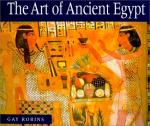|
This section contains 375 words (approx. 2 pages at 300 words per page) |

|
Important Role. Scribes played a vital role in the government bureaucracy, religion, and intellectual life of ancient Egypt. There was a clear development over time from scribes who were recorders of the word to intellectuals who created the text they wrote. The Egyptologist Alessandro Rocatti has speculated that the scribe's importance during the Old Kingdom (circa 2675-2130 B.C.E.) was his ability to read words accurately. This capability was more greatly valued than the skill to write itself. Reading accuracy would have been especially important in religious rituals where priests recited spells exactly as the gods had ordained. During the same period, other scribes were charged with keeping administrative records, but they would have had a lower social status.
Growing Need. Literature beyond administrative lists and religious texts developed during the Middle Kingdom (circa 1980-1630 B.C.E.). It included...
|
This section contains 375 words (approx. 2 pages at 300 words per page) |

|




